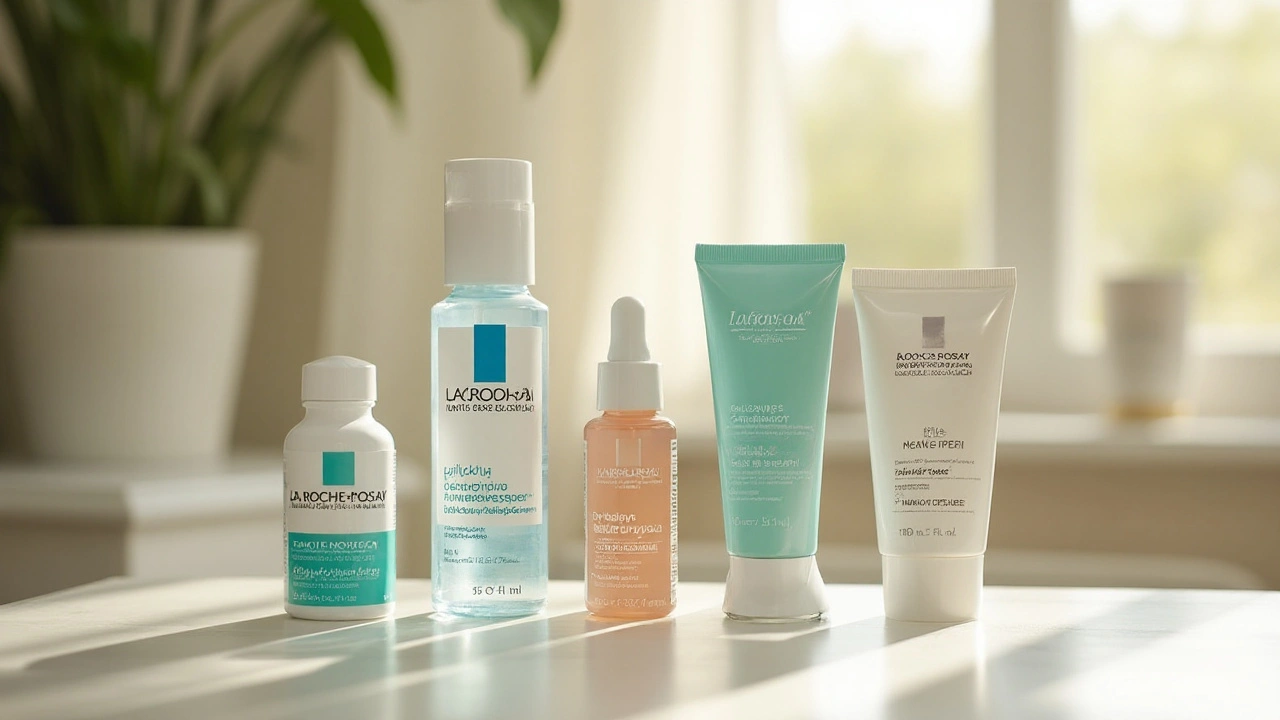Skincare Solutions: Real Help for Irritation and Sensitive Skin
Skin problems can feel constant and frustrating. If your face is red, itchy, or flaky, you want fixes that work now and keep things calm long-term. This page pulls together practical skincare solutions you can try at home and ideas for when to ask a professional.
First, simplify your routine. Use a gentle cleanser, skip scrubs, and pick a fragrance-free moisturizer. Harsh soaps and abrasive tools often make irritation worse. Look for products labeled 'for sensitive skin' or 'non-comedogenic' and patch test anything new on the inside of your wrist for three days before using on your face.
Ingredients that help — and those to avoid
Good ingredients: ceramides, niacinamide, hyaluronic acid, and low-dose topical steroids for short-term flare control (only as directed by a doctor). Ceramides rebuild the skin barrier. Niacinamide calms redness and balances oil. Hyaluronic acid brings lightweight hydration without clogging pores. For open wounds or severe reactions, see a provider before applying anything new.
Watch out for: fragrances, high-strength retinoids during active irritation, alcohols that dry the skin, and physical exfoliants if your skin is inflamed. Even 'natural' oils can trigger reactions for some people. If a product stings or makes redness worse, stop and switch to bland care until the skin calms.
Practical routines and quick fixes
Morning: gentle cleanser, antioxidant serum (like vitamin C if tolerated), moisturizer, and sunscreen. Evening: gentle cleanser, targeted treatment (niacinamide or a mild prescription when needed), then moisturizer. For flare-ups use cool compresses, a thin layer of barrier cream, and avoid hot water. If itching keeps you awake, an over-the-counter antihistamine can help short term.
If you want natural options, consider trying rhatany supplements or topical products with calming plant extracts that have glycerin bases. Some people find relief with oral collagen or topical peptides that support repair, but buy those from reputable sources and check reviews. Be cautious when ordering medications or specialized peptides online — confirm the seller is trustworthy.
When to see a pro: if irritation persists beyond two weeks, spreads, blisters, or causes intense pain. Also get checked if you suspect an allergic reaction or if over-the-counter steps fail. A dermatologist can offer patch testing, prescription creams, and a clear plan tailored to your skin.
Small habits matter: lukewarm showers, soft towels, and a humidifier in dry months. Track products and symptoms in a simple journal so you can spot triggers. With steady care and the right basics, most people see big improvement in a few weeks.
Choose sunscreen with SPF 30 or higher every day, even on cloudy days. For sensitive skin, mineral sunscreens with zinc oxide are usually better tolerated than chemical filters. If you try new actives like retinoids or acids, introduce them slowly—once or twice a week, then increase as tolerated. Want deeper guides? Check our articles on skincare routines for irritations and natural remedies like rhatany for targeted ideas and product tips.
Start small, track changes, and adjust as needed regularly.
This article delves into the best alternatives to Isofair in 2024, a common choice for acne treatment. It provides an in-depth look at six different products and medications, each offering unique benefits and potential drawbacks for users managing acne. From La Roche-Posay's gentle formula to Doxycycline's antibiotic approach, it covers a variety of options catering to different skin types and acne severities. Readers will gain insights into which alternative might best suit their needs.
Read more






